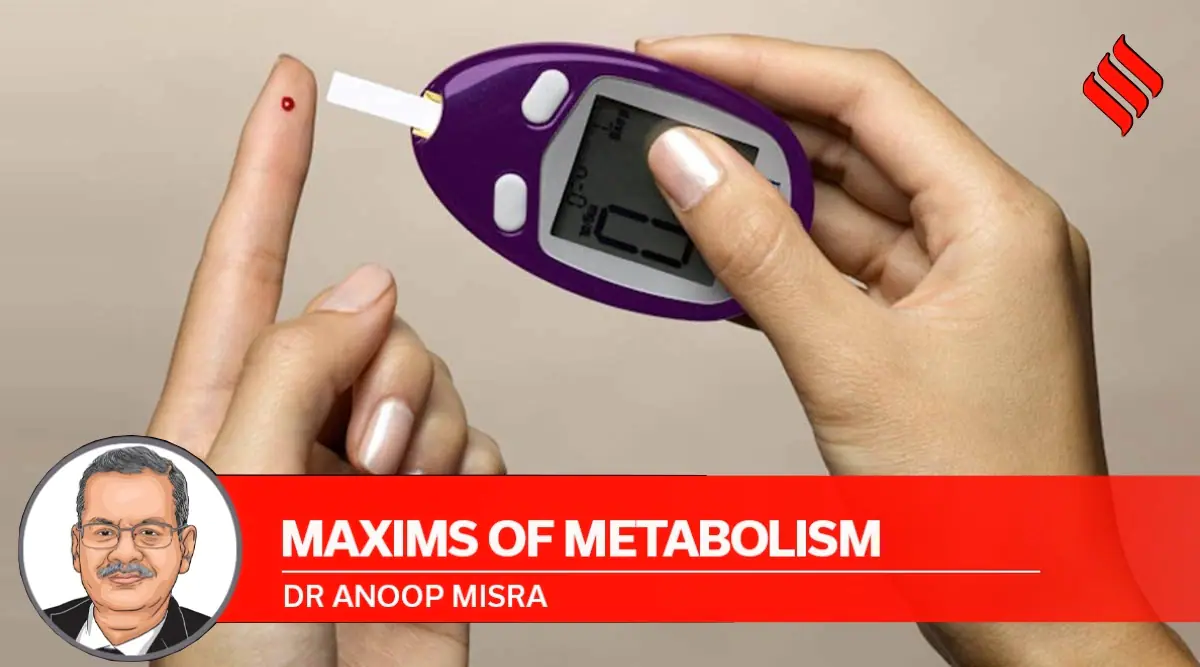New drugs for diabetes: Good for all or for a few?
28 July, 2022

Gone are the days when we looked at blood sugar readings and HbA1C. Hence, among anti-diabetic drugs, those which can prevent and repair damage of vital organs are preferred over older ones, says Dr Anoop Misra, Chairman, Fortis CDOC Hospital for Diabetes and Allied Sciences
Old-time diabetes drugs are time-tested, reliable and generally work well, like reliable Japanese cars. New drugs have novel ways of impacting metabolism and result in new effects on the body. But our experiences are still limited, similar to a new model of Lamborghini. Some of these new drugs are good and some others are better.
Gone are the days when we looked at the blood sugar readings and HbA1C and pronounced whether the patient is fine. Going rapidly past this approach, several other factors are now taken into account. Indeed, the condition of the whole body, and de-conditioning of organs, is the prime goal for correction, apart from blood sugar normalisation. Hence, among anti-diabetic drugs which are currently available, those which can prevent and repair damage of vital organs are preferred over the older ones.
The first organ to be protected among vital organs is the heart. It can be damaged by arterial blockages (resulting in heart attacks) or muscle weakening (resulting in heart failure). New diabetes drugs and non-insulin injections have incredibly favourable actions on both these heart ailments. Research trials have shown remarkable decrease in hospitalisation due to morbid heart failure and prolongation of life with the use of drugs known as SGLT2 inhibitors (Empagliflozin, dapagliflozin, canagliflozin etc). Of more interest, non-insulin injectable drugs (GLP-1 receptor analogues) can work on concrete like barriers (plaques) in vital arteries and create more space for blood to pass through.
Then there is damage to vital organs like the kidneys (presenting with protein leakage and raised creatinine), which causes great disturbance to body physiology and majorly disrupts daily functioning of patients. Unfortunately, there are only a few drugs to control kidney damage. The only effective kidney drug for the last 20 years have been anti-hypertensive medicines of class ACEI/ARB. Recent trials show that SGLT2 inhibitor drugs not only improve kidney functions greatly, but also decrease heart disease in these patients.
Thus, a new era dawns for treatment of kidney disease! Now SGLT2 inhibitor drugs are being used for patients with heart and kidney disease even when patients do not have diabetes. We, the physicians, have never known such phenomenal drug effects previously.
The goodness of these drugs is not limited to the kidney and heart in patients with diabetes. These reduce body weight to a significant degree. Indeed, non-insulin injectable drugs (GLP-1 receptor analogues) are next only to bariatric weight loss surgery in terms of loss of kilos by patients and are now licensed to be used as weight loss therapy in non-diabetic obese patients.
Are these wonder drugs? Nearly so. Should these be given to all patients with diabetes? No. Patients should be categorised based on their size, clinical and metabolic profiles and economic status and then these new drugs should be fitted appropriately. They certainly cannot be given to patients with Type 1 diabetes, very thin people with diabetes, and in diabetes in pregnancy.
One point of view is surely emerging; no eligible patient should be denied benefits of these new drugs. It is best for patients to discuss pros and cons of these drugs with their physicians. Finally, any of these drugs will fail if correct choices in diet and exercise are not followed.
Source: indianexpress.com
TAG(s):
